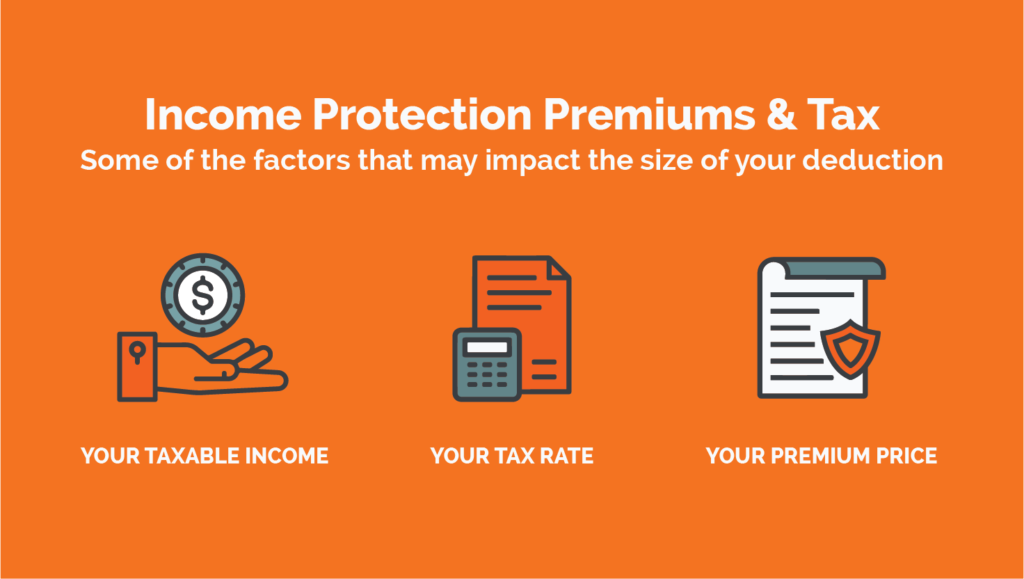Is Income Protection Insurance Tax Deductible?
Is Income Protection Insurance Tax Deductible?
*iSelect’s partnered with Lifebroker to help you compare a range of Life Insurance policies. Not all policies are available at all times or in all areas. Any advice provided on this website is general in nature and does not consider your situation or needs. Please consider if any advice is appropriate for you before acting on it. Learn more.
Easily compare life insurance quotes
Save time and effort by comparing life insurance with iSelect’s trusted partner Lifebroker*
You may have taken the time to insure your valuable assets like your house or your car, but what about your income? If you get injured or become unwell and you’re unable to work, you might quickly find yourself in severe financial difficulty. Income protection insurance helps you retain an income stream when you’re unable to work.
The Australian Securities and Investments Commission advises that income protection insurance can cover for up to 70% of your gross wages,1https://www.moneysmart.gov.au/insurance/life-insurance/income-protection/ for a specified time period (for example, for two years or to age 70 dependent on the benefit period chosen).
These payments replace your salary while you recover, helping you to manage your daily living expenses such as education costs, mortgage payments, groceries, petrol, entertainment, and health costs.
When considering income protection insurance, it’s a good idea to investigate if any tax benefits apply to your premiums.
Does income protection insurance include GST?
Income protection insurance is exempt from GST in Australia,2https://www.ato.gov.au/business/gst/when-to-charge-gst-(and-when-not-to)/input-taxed-sales/financial-supplies/ as it is classified as a financial service. Insurance for income protection is further classified as ‘financial supplies’, and the ATO states that ‘financial supplies are input-taxed sales and do not have GST in their price.’3https://www.ato.gov.au/business/gst/when-to-charge-gst-(and-when-not-to)/input-taxed-sales/financial-supplies/

Is income protection insurance taxed by the ATO?
The ATO states that you can claim the cost of premiums you pay for income protection insurance against the loss of your income. However, you also need to include payments you receive through your income protection insurance as income.4https://www.ato.gov.au/Individuals/Income-and-deductions/Deductions-you-can-claim/Other-deductions/Income-protection-insurance/
This means that while you’re paying income protection insurance premiums, you may be entitled to tax benefits. If you suffer an accident or illness and are unable to work, and you successfully claim your income protection insurance and start receiving benefits, legally you must claim this as income with the ATO.
What tax deductions can you claim for income protection insurance?
Generally, you can claim your income protection insurance premiums as a tax deduction3 . The amount of tax deduction you can claim may depend upon:
- Your taxable income
- Your tax rate
- Your premium price
The tax deduction varies, but depending on your circumstances it could mean a significant reduction compared to the original premium that you paid.

How do I qualify for an income protection tax deduction?
Under Australian law, you can generally qualify for an income protection tax deduction if you’re eligible to take out an insurance policy from an approved Australian provider3.
In short, if you hold an income protection insurance policy, you are generally eligible for a tax deduction. Your accountant can investigate the specifics of your policy to determine what level of deduction you may be able to claim with the ATO.
What if your income protection insurance is bundled in with other levels of cover in your life policy?
Your income protection insurance is the only element of the insurance premium that is eligible for a tax deduction. Therefore, you cannot claim deductions for other elements of the bundled policy, such as life insurance, or trauma insurance.
Can I claim income protection tax deductions through superannuation premiums?
No, even though you can arrange income protection insurance premiums through your superannuation, these premiums are not eligible for tax reductions. The ATO states that exemptions apply where the policy is taken out through your superannuation, your insurance premiums are deducted from your super contributions. This applies to self-managed super funds, as well as commercial super funds.

.svg)




